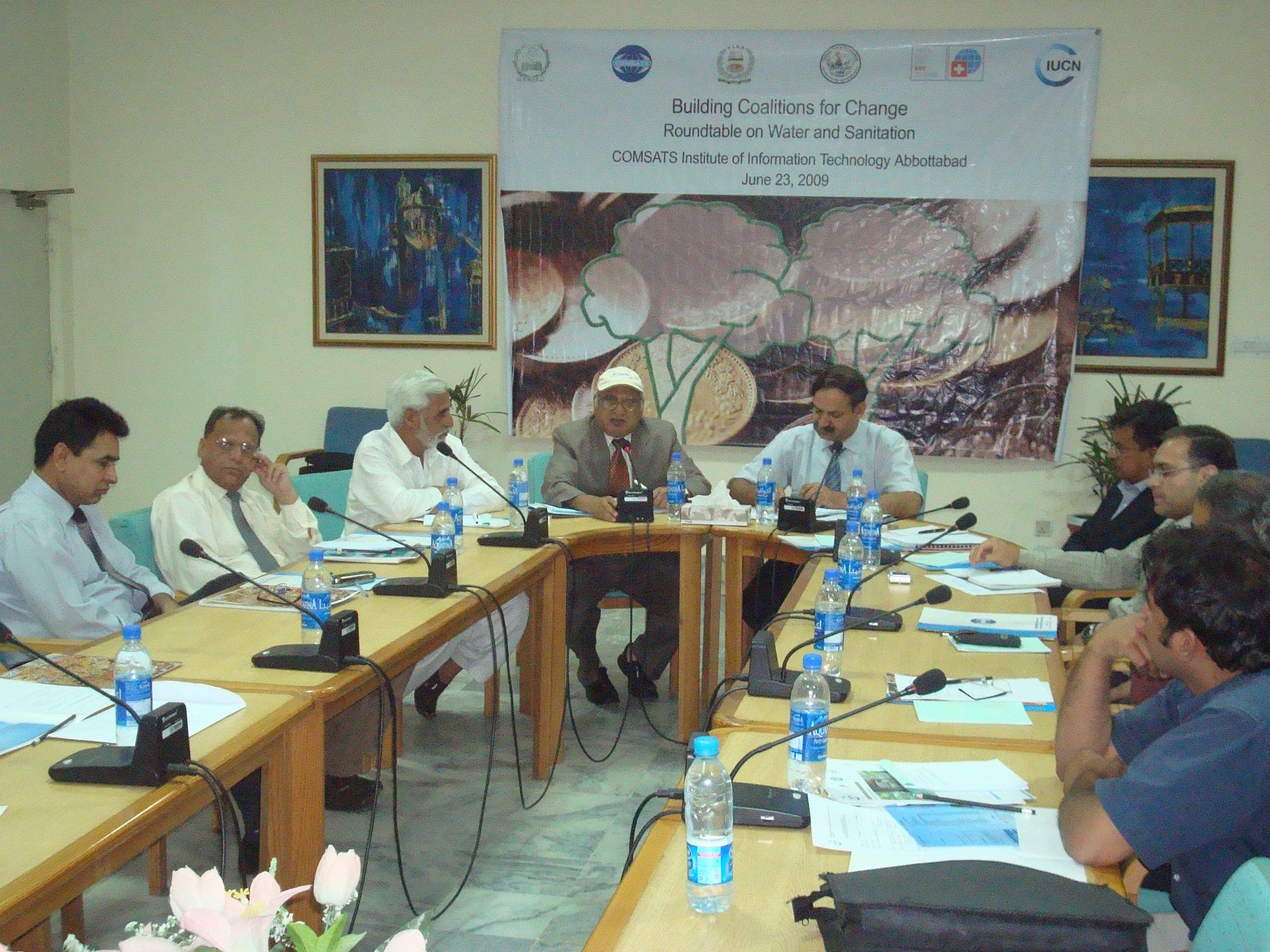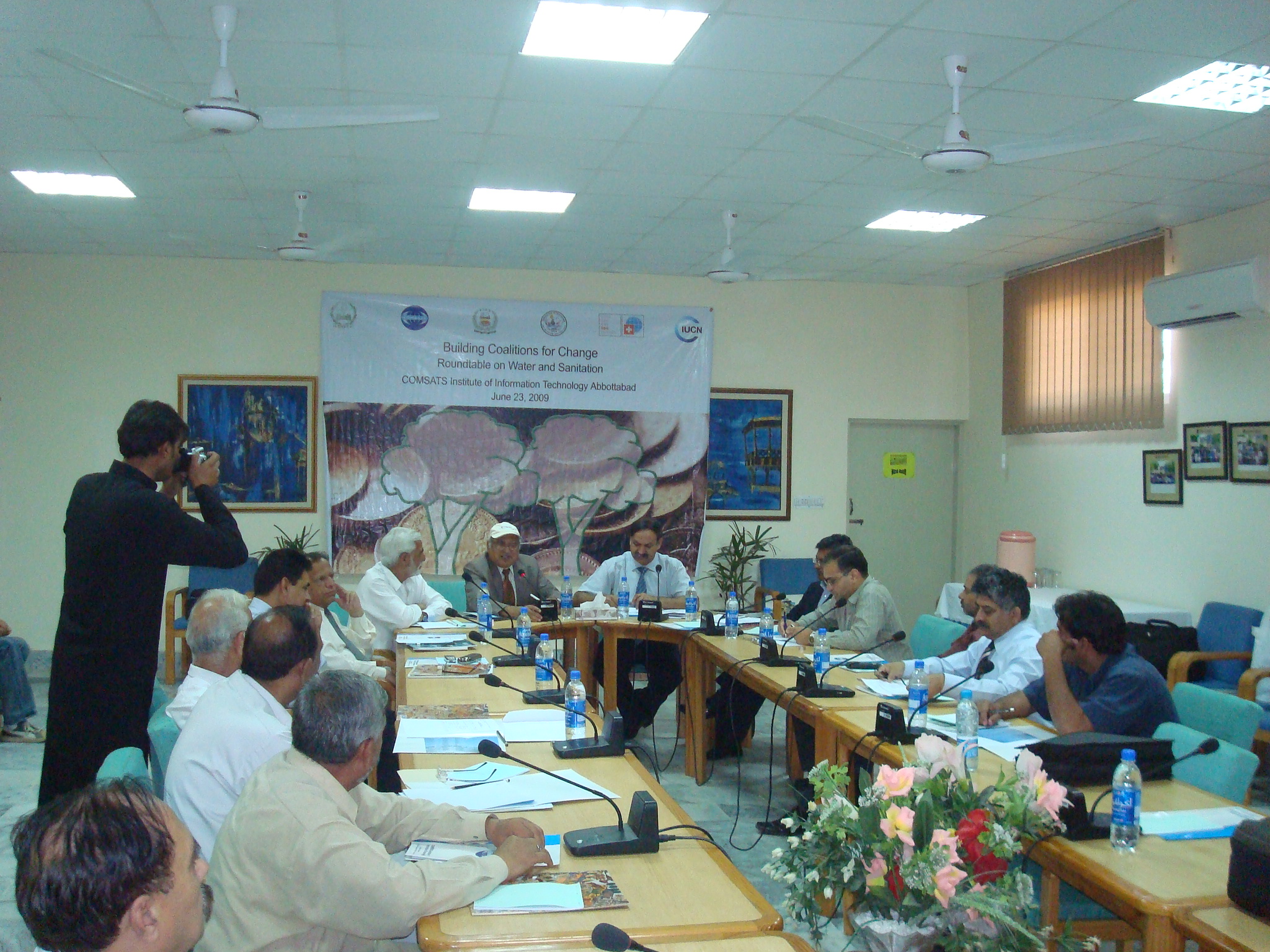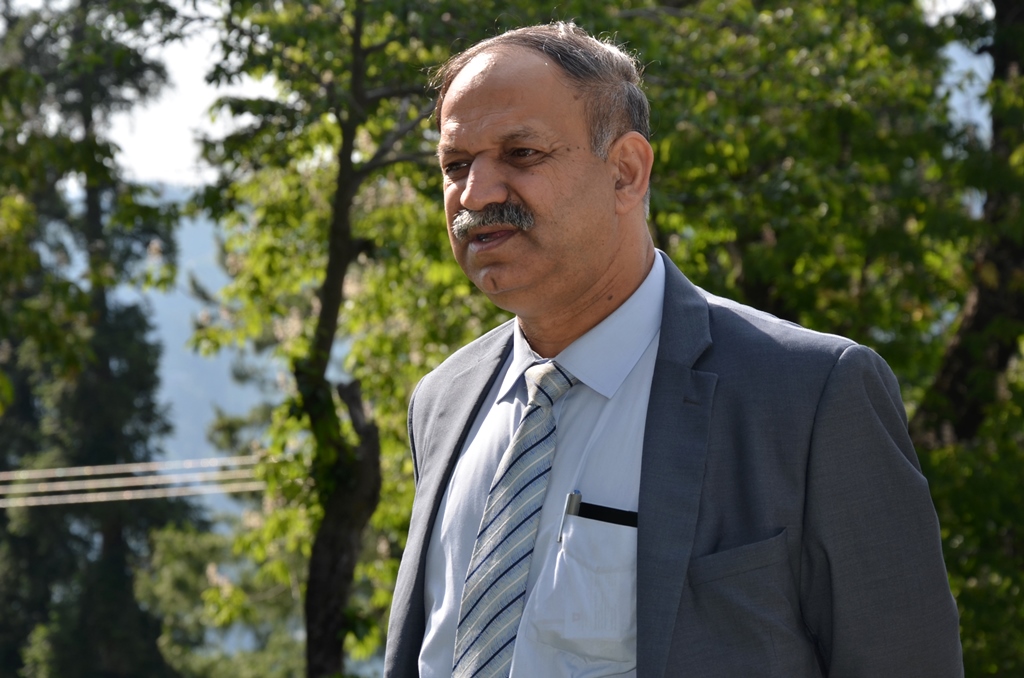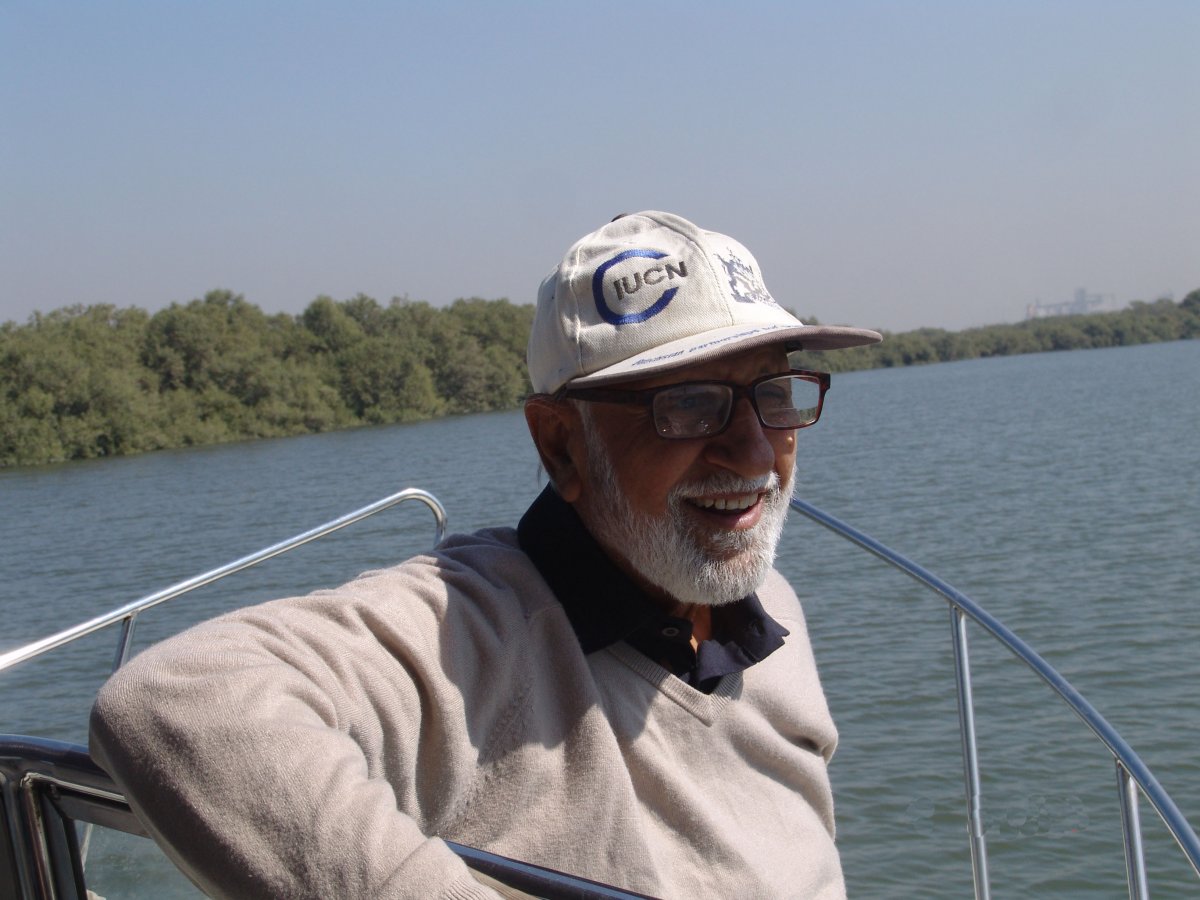Roundtable on Water and Sanitation urges catchment protection
Experts stress upon the need for awareness raising, better coordination and governance for WATSAN in Abbottabad
Abbottabad, 24 June 2009: – A roundtable of Water and Sanitation experts was held today at COMSATS Institute of Information Technology in Abbottabad. This roundtable was organized under the auspices of Environmental Fiscal Reforms (EFR) Project of IUCN Pakistan, COMSATS and District Government, Abbottabad. The EFR Project is being implemented jointly by the District Government, Abbottabad and International Union for Conservation of Nature (IUCN), with the assistance of Swiss Agency for Development Cooperation (SDC).
A large number of stakeholders including scientists, researchers, water and sanitation experts and representatives from the corporate sector, communities, civil society, development actors and relevant government departments participated in this roundtable.
While deliberating on various water and sanitation issues faced by the population residing in Abbottabad, experts urged for more investment, wise use of resources and better coordination among different government departments.
Experts further stressed upon the need for protection of catchments from pollution, regeneration of forests and awareness raising campaigns among local population regarding proper waste management and wise use of water resources. The highlight of the roundtable was the plan to harvest and store rainwater for future use.
In addition to this roundtable, third meeting of the Project Steering Committee (PSC) of the EFR Project was held under the Chairmanship of Zaheer ul Islam, District Coordination Officer, Abbottabad. The Project Steering Committee serves as a body to guide, advise and facilitate the implementation of the project and ensure linkages and information sharing to create an enabling framework for implementation of pro-poor environmental fiscal reforms in District Abbottabad.
Zaheer ul Islam, DCO, Abbottabad in his welcome remarks appreciated the concept and progress made by the EFR project. He also appreciated the outcomes of scientific research undertaken in the selected sectors of solid waste, drinking water, quarrying and mining and eco- tourism. The DCO also emphasized on need for fiscal reforms and building capacities of local government to enhance environmental management practices in all sectors.
Mahmood Akhtar Cheema, Head, IUCN-P, Islamabad gave a presentation on the concept of the project and its main components that include; Action Research and Awareness Raising, Enabling Institutional, Legal and Policy Framework, Capacity Building, Piloting Select EFR Options and wider dissemination for Replication. He also briefed the audience about the salient activities undertaken so far under the project including the pilots that are being implemented in Nawanshehr in sectors of drinking water and solid waste management.
The PSC stressed that the findings of research work completed under the projects needed to be converted into practical actions. It was decided that the pilots would be effectively implanted in Nawanshehr to develop it into a model that can be replicated in the rest of Abbottabad district and elsewhere. The PSC also endorsed the progress and activity plan of the project for year 2009.




